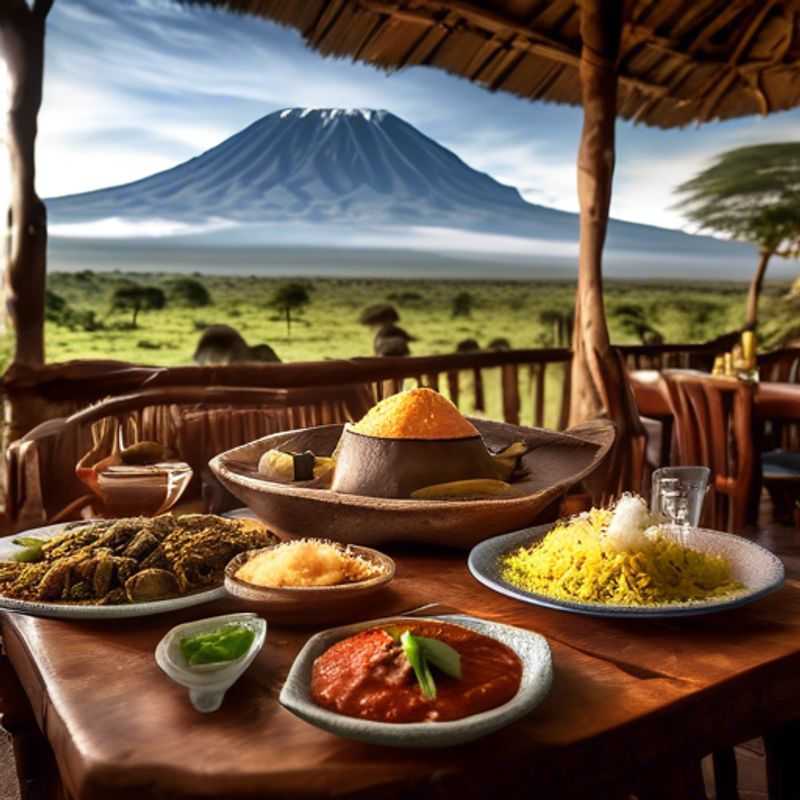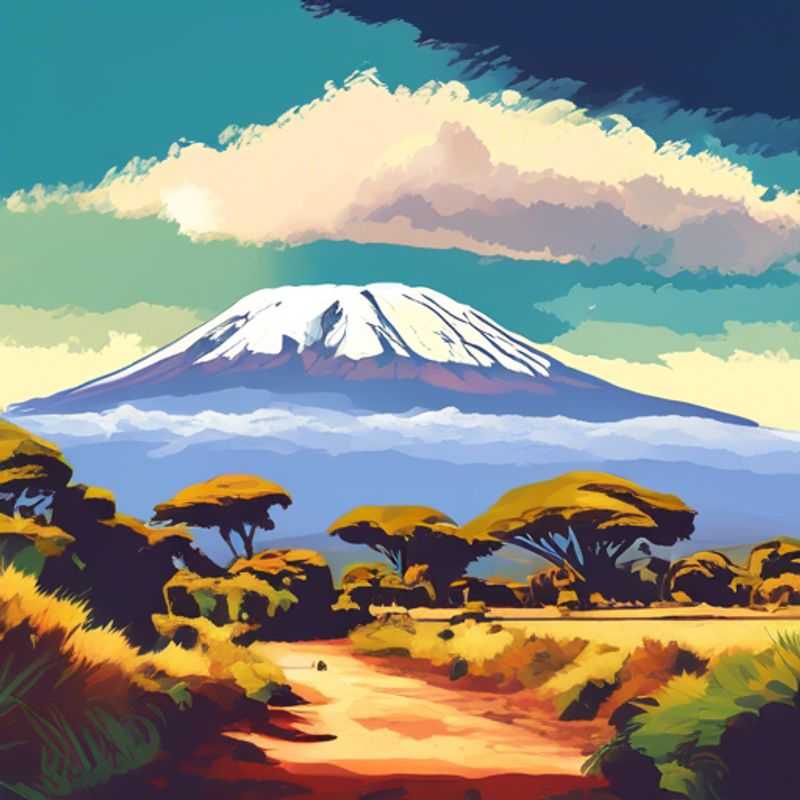Лучшие 5 мест, достопримечательностей и активностей для гурманов с детьми, путешествующих по Килиманджаро в Танзании

Безопасен ли Гора Килиманджаро, Танзания для бэкпекеров в 2026 году?
Безопасность в поездках с рюкзаком в 2026 году: что нужно знать. В условиях постоянно меняющегося мира, подготовка к путешествию с рюкзаком становится особенно важной. В 2026 году, как и раньше, ответственное планирование и информированность являются ключом к безопасному и приятному опыту. Отслеживание актуальной политической и социальной обстановки в выбранных странах — это первоочередная задача. Официальные источники и проверенные туристические ресурсы предоставят вам самую свежую информацию о возможных рисках.
Медицинская подготовка остается краеугольным камнем. Убедитесь, что ваши прививки актуальны, и проконсультируйтесь с врачом о необходимости дополнительных вакцин или профилактических мер. Аптечка первой помощи должна быть тщательно собрана с учетом ваших индивидуальных потребностей и специфики направлений. Надежное медицинское страхование, покрывающее экстренные случаи и эвакуацию, — это абсолютно необходимая мера.
Финансовая безопасность требует особого внимания. Разделите свои средства: держите часть наличных в надежном месте, используйте несколько банковских карт разных систем и рассмотрите возможность использования криптовалютных кошельков для некоторых транзакций, если это возможно и безопасно в вашем регионе. Избегайте демонстрации дорогих вещей и будьте бдительны в людных местах, чтобы минимизировать риск кражи.
Сохранение цифровой безопасности в 2026 году приобретает новое значение. Используйте VPN-сервисы для защиты вашего интернет-соединения, особенно при использовании общедоступного Wi-Fi. Двухфакторная аутентификация для всех ваших учетных записей — это обязательное условие. Будьте осторожны с тем, какую информацию вы публикуете в социальных сетях, и не раскрывайте свое точное местоположение в режиме реального времени.
Культурное уважение и адаптация — это не только вопрос безопасности, но и ключ к более глубокому пониманию местной жизни. Изучите основные фразы на местном языке, уважайте местные обычаи и традиции. Избегайте конфликтных ситуаций и старайтесь решать любые недоразумения мирным путем. Полагайтесь на свою интуицию — если что-то кажется вам подозрительным, лучше перестраховаться.
В целом, безопасность в 2026 году для бэкпекеров — это сочетание проактивного планирования, информационной осведомленности и разумной осторожности. Путешествуйте с умом, будьте готовы к неожиданностям, и ваш опыт будет незабываемым!
Kilimanjaro, the majestic mountain that stands as a sentinel in Tanzania's heart, beckons adventurers to its slopes during the summer and fall months.

Вам также может понравиться
Погружайтесь в настоящую Танзанию: Традиционная кухня в горах Килиманджаро
Kilimanjaro, Tanzania, is a truly spectacular destination for families, especially during the summer and fall months when the weather is mild and pleasant. The region is famous for its stunning natural beauty, including Mount Kilimanjaro, Africa's highest peak, and the vast Serengeti National Park. While the adventurous spirit of Kilimanjaro attracts many, let's not forget about the vibrant local culture, which offers a wonderful opportunity to immerse yourself in the rich tapestry of Tanzanian life.
One of the most enriching experiences you can have is trying traditional Tanzanian food at a local restaurant. The cuisine is characterized by fresh ingredients, flavorful spices, and unique combinations that reflect the diverse culinary heritage of the region. You might encounter dishes like ugali, a staple food made from maize flour, often served alongside stews like nyama choma (grilled meat) or samaki (fish). Don't be shy to try ndizi (plantain), a popular side dish, or the delicious pilau, a fragrant rice dish infused with spices.
Here's a tip for experiencing authentic Tanzanian food: avoid tourist-heavy restaurants and venture into local neighborhoods where you can find hidden gems. Local restaurants are usually more affordable and offer a more genuine glimpse into the local culture. You can expect to spend around 10-15 USD for a hearty meal at a local eatery. Remember to be respectful of local customs and traditions when dining in Tanzania.
When exploring Kilimanjaro, take advantage of the opportunity to interact with the local people. Their warmth and hospitality are legendary. You can find local markets bustling with activity, where you can purchase handcrafted souvenirs and interact with local artisans. You'll likely hear vibrant Swahili spoken, the official language of Tanzania, but don't be surprised if you also hear English spoken in tourist areas.
As you journey through the landscapes of Kilimanjaro, you'll notice the striking contrast between the lush greenery of the foothills and the breathtaking views of snow-capped Mount Kilimanjaro. You might even spot some local wildlife, such as zebras, giraffes, and baboons. The landscapes around Kilimanjaro are truly a sight to behold, providing an unforgettable backdrop for your family adventure.
Tanzania is known for its friendly people and peaceful atmosphere. You'll find that locals are welcoming and eager to share their culture. It's a good idea to be aware of local customs and traditions, especially when it comes to dress. While casual attire is acceptable in most places, it's advisable to dress modestly when visiting religious sites or villages.
Overall, a family trip to Kilimanjaro can be a wonderfully enriching experience, combining the thrills of adventure with the charm of local culture. Embrace the opportunity to try delicious local food, explore the natural beauty, and engage with the kind and welcoming people of Tanzania. Enjoy the journey and create memories that will last a lifetime!

Вам также может понравиться
Что нужно знать бэкпекерам перед визитом в 2026 году
Перед поездкой в 2026 году рюкзачникам стоит учесть несколько важных моментов. Во-первых, визовые требования могут измениться, поэтому заранее проверьте актуальную информацию на официальных сайтах. Во-вторых, цены на проживание и транспорт, скорее всего, вырастут, планируйте бюджет с учетом этого. Бронируйте жилье и билеты заранее, особенно если планируете посетить популярные места в пиковый сезон. В-третьих, местная культура и обычаи могут отличаться от ваших, поэтому постарайтесь изучить их, чтобы избежать недоразумений. Уважайте местные традиции и одевайтесь соответственно. В-четвертых, безопасность всегда на первом месте. Изучите информацию о безопасных районах, избегайте ночных прогулок в незнакомых местах и следите за своими вещами. Страховка для путешествий – это обязательный пункт, не экономьте на ней. Наконец, мобильность и связь. Приобретите местную SIM-карту или изучите тарифы на роуминг. Загрузите офлайн-карты и полезные приложения заранее. Быть готовым к неожиданностям – ключ к успешному и приятному путешествию.